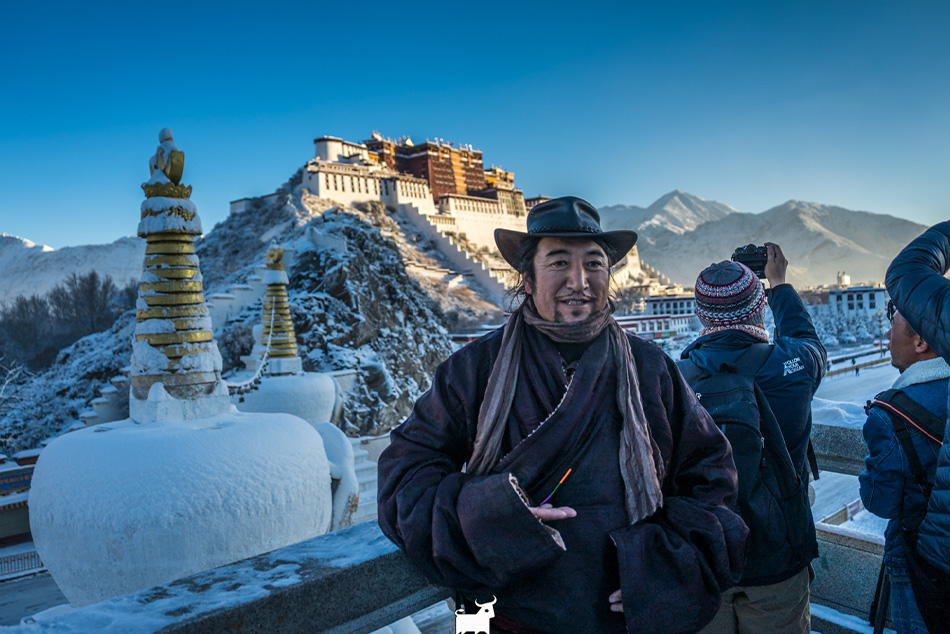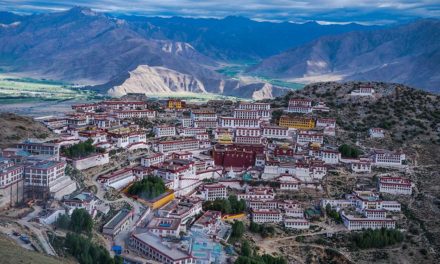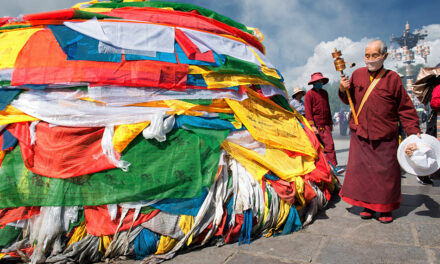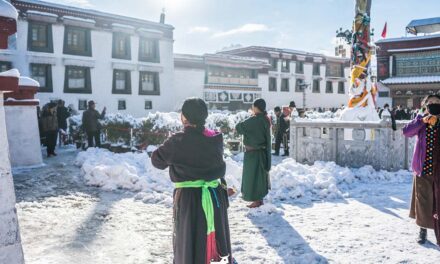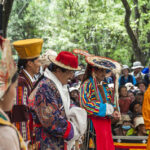Planning Your Next Trip to Tibet: Tibet Travel Tips and Advice: As a Tibetan travel agency, we highly recommend Tibet as a must-visit destination for travelers looking for a unique and enriching experience. Planning a trip to Tibet can be a bit daunting, but with proper preparation, it can be a life-changing experience. In this article, we will provide you with tips and advice for planning your next trip to Tibet.
When planning a trip to Tibet, it is important to consider the unique cultural and environmental factors of the region. Tibet offers a fascinating mix of ancient history, spiritual traditions, and breathtaking natural scenery. As a result, travelers should expect to encounter a different way of life and take measures to be respectful and responsible tourists.
In this article, we will cover the essential materials and preparations needed for a trip to Tibet, including travel documents, proper clothing, and altitude sickness prevention. We will also discuss whether independent travel is possible in Tibet and provide tips for budget-friendly travel.
As a Tibetan travel agency, we highly recommend hiring a local tour guide for the best experience in Tibet. In this article, we will explain why a local tour guide is beneficial and recommend reliable tour agencies. Additionally, we will discuss how to respect Tibetan culture and traditions, as well as how to minimize the negative impact of tourism on the environment.
By the end of this article, we hope that you will feel confident and prepared for your next trip to Tibet. As a Tibetan travel agency, we prioritize E-A-T (Expertise, Authority, and Trustworthiness) and strive to provide you with accurate and helpful information. Let’s dive in and plan your next adventure in Tibet!
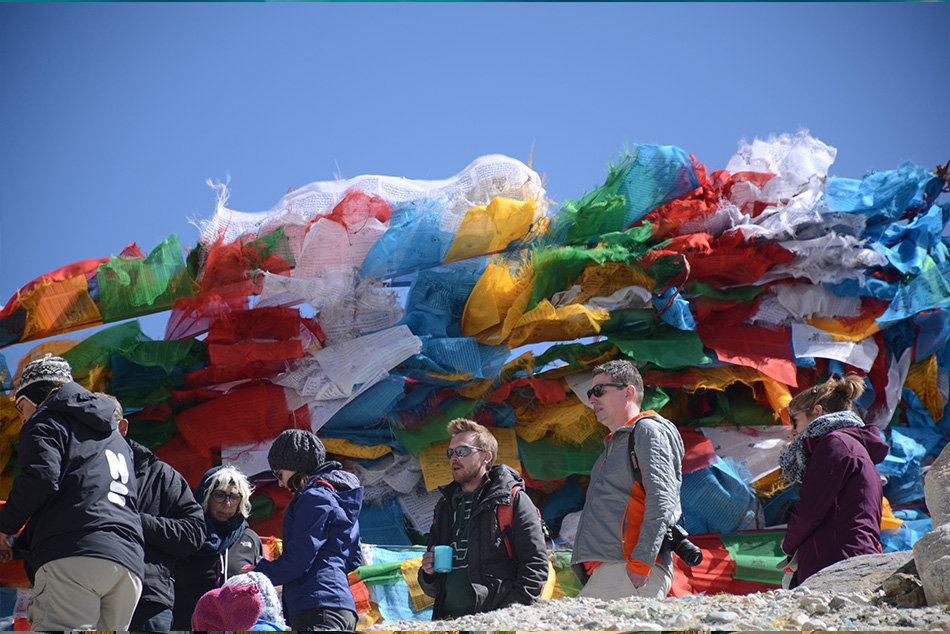
Required Materials
As a Tibetan travel agency, we highly recommend preparing the necessary materials before your trip to Tibet. Here are some essential items that you need to consider:
Necessary travel documents for Tibet:
To enter Tibet, foreign travelers need to obtain a Tibet Travel Permit (TTP) issued by the Tibet Tourism Bureau. You can obtain this permit through a licensed local travel agency in Tibet. In addition to the TTP, you also need to obtain a China visa and a valid passport. Make sure to apply for these documents well in advance of your trip.
Proper clothing and gear for different seasons:
Tibet has a unique climate, and temperatures can vary greatly depending on the season and altitude. We recommend bringing warm clothing even during the summer months, as temperatures can drop below freezing at night. Additionally, bring comfortable hiking shoes, sunglasses, sunscreen, and a hat to protect yourself from the sun. In the winter, bring extra layers, a down jacket, gloves, and a scarf.
Recommended medications and vaccinations:
Before traveling to Tibet, consult your doctor for recommended vaccinations and medications. Some common vaccinations recommended for Tibet include hepatitis A and B, typhoid, and rabies. Altitude sickness medication is also recommended for most travelers.
Altitude sickness prevention and treatment options:
Tibet is known for its high altitude, and altitude sickness can affect many travelers. We recommend taking proper precautions to prevent altitude sickness, such as acclimatizing slowly, staying hydrated, and avoiding alcohol and strenuous exercise. In case of altitude sickness, seek medical attention immediately. Read more about Acclimatization in Tibet.
By having the necessary materials, you can ensure a safe and comfortable trip to Tibet. As a Tibetan travel agency, we prioritize providing accurate and helpful information to our clients. In the next section, we will discuss whether independent travel is possible in Tibet. you will find more information on The ultimate Tibet guide.
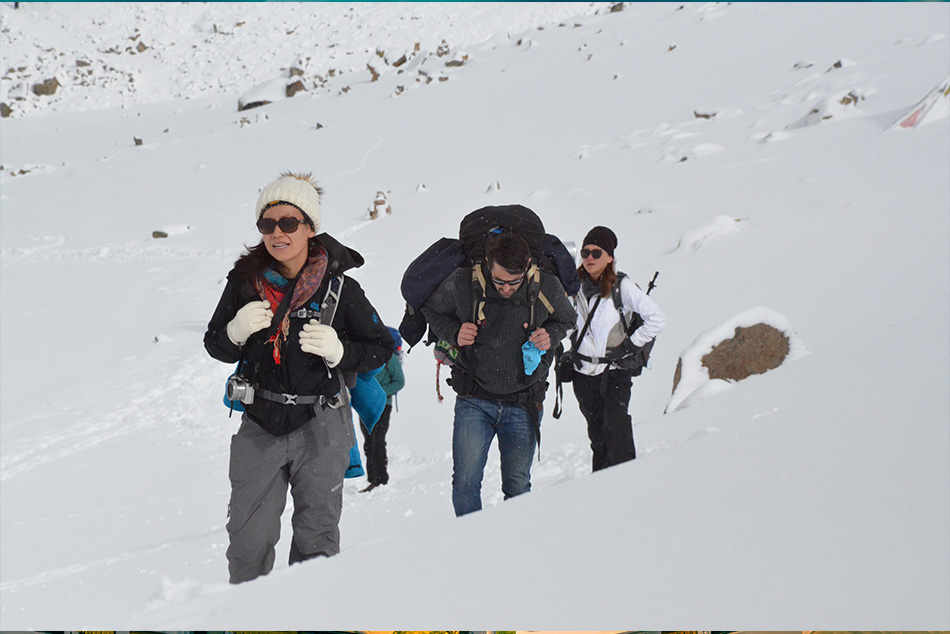
Is it Possible to Travel to Tibet Independently?
Tibet is a unique destination with its own set of rules and regulations. It is important to note that independent travel to Tibet is not currently permitted. All foreign travelers must be accompanied by a registered tour guide and travel with a pre-arranged itinerary.
While this may seem like a limitation, there are actually many benefits to traveling with a guide. They can provide valuable insight into the local culture and history, as well as ensure that all necessary permits and paperwork are in order. Additionally, traveling with a guide can provide a sense of security and comfort in an unfamiliar place.
Traveling with a guide can be more expensive than independent travel, but it is the only option for visiting Tibet as a foreigner. The cost of the guide and permits is included in the overall cost of the tour package. It is important to work with a reputable travel agency to ensure that all necessary arrangements are made and that the tour is conducted in a responsible and sustainable manner.
Beside having accompanied by the guide, you will still make your own tour itinerary. Our travel agency will be more than happy to create a perfect tour itinerary to suit your interest.
Can You Plan a Budget-Friendly Trip to Tibet?
Traveling to Tibet doesn’t have to break the bank. With careful planning and budgeting, you can enjoy a memorable trip to Tibet without overspending. Here are some tips for planning a budget-friendly trip to Tibet:
Budget-friendly accommodation options:
There are plenty of budget-friendly accommodations in Tibet, ranging from hostels and guesthouses to budget hotels. You can also choose to stay in a homestay with a local family to experience authentic Tibetan hospitality. Be sure to book your accommodation in advance during peak travel seasons.
Affordable transportation methods:
Public transportation is the most budget-friendly way to get around within Lhasa. here You can take local buses or shared taxis to reach your destination. However, if you’re short on time and prefer a more comfortable option, you can also opt for private tours.
Budget-friendly food and drink options:
You can find affordable food and drink options at local Tibetan restaurants and Tea House. You can try traditional Tibetan dishes such as momos, thukpa, and tsampa. Be sure to carry snacks and water with you while traveling to avoid overspending on food and drinks.
Free and low-cost activities in Tibet:
There are plenty of free and low-cost activities in Tibet that you can enjoy. You can explore the beautiful monasteries and temples in Lhasa, hike the stunning landscapes of Namtso Lake, or take a stroll through the traditional markets in Shigatse. You can also attend local festivals and cultural events to experience the vibrant Tibetan culture.
Joining Tibet Group tour:
All major travel agency in Lhasa, offers Tibet group tour. The group tour is design to make your visit to tibet affordable by sharing the cost of tour guide and vehicle with fellow traveler. We have plently of options for the group tours. please check ours group tours.
By following these tips, you can plan a budget-friendly trip to Tibet without sacrificing the experience. Don’t hesitate to contact us at [email protected] for more information on budget-friendly travel options in Tibet.

Why You Should Hire a Local Tour Guide
If you’re planning a trip to Tibet, Though it is mandatory for all to hire a local tour guide in tibet, hiring a local tour guide can greatly enhance your travel experience. Here are some of the benefits of hiring a local tour guide in Tibet:
Local knowledge: A local tour guide has extensive knowledge of the region and can provide you with valuable insights about the history, culture, and traditions of Tibet.
Language assistance: Tibet is a region with its own unique language and hiring a local tour guide can help you communicate more effectively with the locals and navigate the region with ease.
Hassle-free travel: A local tour guide can help you navigate the complicated regulations and permits required to visit certain areas in Tibet, making your travel experience smoother and more hassle-free.
Personalized itineraries: Hiring a local tour guide allows you to customize your itinerary to your specific interests and needs, ensuring you get the most out of your trip.
At i-Tibet travel & Tours, we offer professional and experienced local tour guides who are passionate about sharing their love of Tibet with travelers from around the world. Our tour guides are knowledgeable, friendly, and dedicated to providing you with an unforgettable travel experience. Contact us today to learn more about our tour guide services and to start planning your trip to Tibet!
Ways to Respect Tibetan Culture and Traditions during your Tibet travel
When traveling to Tibet, it’s important to be mindful of the local culture and traditions. Here are some tips on how to respect Tibetan culture:
Do’s and Don’ts:
- Do dress modestly and respectfully, especially when visiting religious sites.
- Do show respect to the locals by greeting them with “Tashi Delek” (hello) or “Kadrin Che” (thank you).
- Don’t touch or remove any religious artifacts or statues.
- Don’t take pictures of the locals or religious ceremonies without permission.
- Don’t engage in public displays of affection.
Recommended cultural experiences:
- Visit a monastery or temple and participate in a prayer ceremony.
- Attend a traditional Tibetan opera or dance performance.
- Try Tibetan cuisine, such as momos (dumplings) and yak butter tea.
- Learn about Tibetan history and culture by visiting museums and cultural centers.
Minimizing the negative impact of tourism:
- Choose local tour operators who are committed to sustainable and responsible tourism practices.
- Respect the natural environment and wildlife by avoiding littering and not disturbing animals.
- Purchase locally made handicrafts and products to support the local economy.
- Consider making a donation to a local charity or non-profit organization that supports Tibetan communities.
Methods to Minimize Your Environmental Impact in Tibet
As a responsible traveler, it’s important to minimize your environmental impact in Tibet. Here are some tips for eco-friendly travel and sustainable tourism initiatives in Tibet.
Environmental challenges in Tibet
Tibet faces a range of environmental challenges, including deforestation, water scarcity, and soil erosion. These issues are often compounded by the effects of climate change, such as melting glaciers and changes in precipitation patterns.
Tips for eco-friendly travel in Tibet
- Bring a reusable water bottle and filter to minimize plastic waste and avoid buying bottled water
- Respect the natural environment and avoid littering
- Use public transportation, walk, or bike instead of hiring a private car
- Stay in eco-friendly accommodations that prioritize sustainability and minimize waste
- Choose locally produced food and products to support the local economy and minimize carbon emissions from transportation
- Respect wildlife and avoid activities that harm animals
- Sustainable tourism initiatives in Tibet
- Several initiatives are underway to promote sustainable tourism in Tibet.
These include the promotion of responsible travel practices, the development of eco-friendly accommodations and transportation options, and the creation of conservation areas to protect biodiversity and natural resources. By supporting these initiatives and being a responsible traveler, you can help preserve the natural beauty of Tibet for future generations.
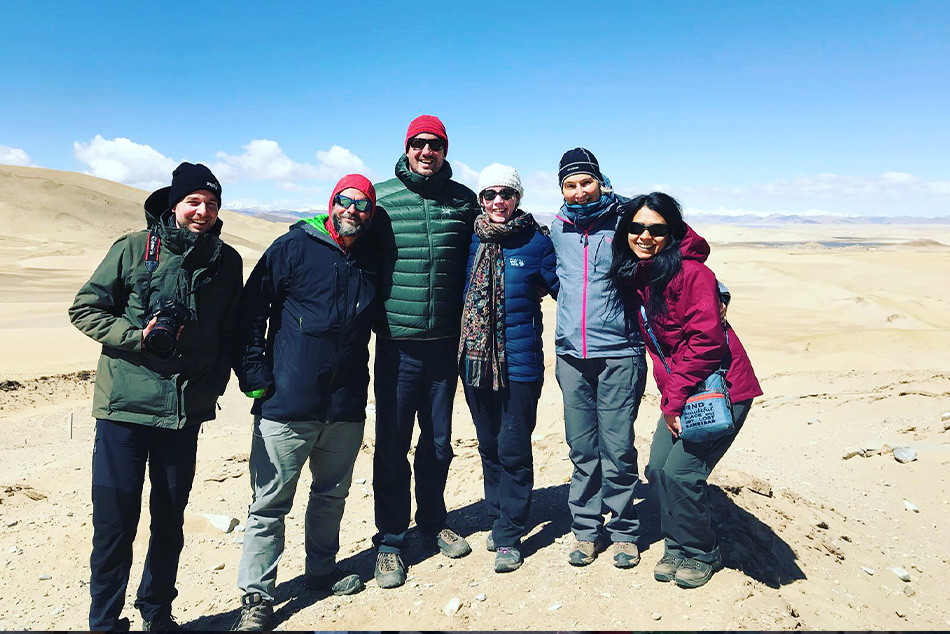
FAQs on Planning Your Next Trip to Tibet: Tibet Travel Tips and Advice
How do I obtain a Tibet Travel Permit?
To obtain a Tibet Travel Permit, foreign travelers must book a guided tour with a licensed travel agency in Tibet. The agency will apply for the permit on behalf of the travelers by submitting their passport and visa details to the Tibet Tourism Bureau. It typically takes around 15-20 days to obtain the permit, so it’s important to plan well in advance. It’s also worth noting that the permit is only valid for the specific dates and destinations listed, so any changes to the itinerary require a new permit.
What is the best time of year to visit Tibet?
The best time of year to visit Tibet is generally from April to November when the weather is warmer and more stable. The peak tourist season is from May to October when the temperature is mild, and the skies are clearer, making it easier to see the stunning landscapes and views. However, it’s important to note that different areas of Tibet may have their own ideal visiting time due to varying climates and elevation. For example, the winter months from December to February can be a good time to visit the lower altitude regions of Tibet such as Lhasa, while the summer months are best for exploring the high altitude areas like Mount Everest Base Camp. It’s always best to consult with a local travel agency for the most up-to-date information on the best time to visit specific regions in Tibet based on your travel preferences and itinerary.
What should I know about altitude sickness?
Altitude sickness, also known as acute mountain sickness (AMS), is a common condition that can occur when traveling to high-altitude destinations such as Tibet. It is caused by the decreased amount of oxygen at higher elevations, which can result in symptoms such as headache, nausea, fatigue, and difficulty sleeping.
To minimize the risk of altitude sickness, it is important to acclimatize properly by ascending gradually and allowing your body time to adjust to the altitude. It is also recommended to stay hydrated, avoid alcohol and tobacco, and eat foods that are high in carbohydrates.
If you experience symptoms of altitude sickness, it is important to rest and avoid further ascent until your symptoms improve. In severe cases, medication or oxygen therapy may be necessary. It is always recommended to consult with a healthcare professional before traveling to high-altitude destinations, especially if you have a history of respiratory or heart problems.
How do I choose a reliable tour agency in Tibet?
Choosing a reliable tour agency is essential for a smooth and safe trip to Tibet. Here are some tips on how to choose a reliable tour agency in Tibet:
- Check their license and permits: A reliable tour agency should be licensed and have all the necessary permits to operate in Tibet.
- Read reviews: Reading reviews from previous customers can give you an idea of the quality of service provided by the agency.
- Look for experience: Choose an agency with a proven track record of organizing tours in Tibet.
- Consider their communication: A reliable tour agency should be responsive to your inquiries and provide clear and timely information.
- Check their itineraries: Look for a tour agency that offers well-planned and comprehensive itineraries.
We highly recommend iTibettravel as a reliable tour agency in Tibet. With over 10 years of experience in organizing tours in Tibet, they have a proven track record of providing high-quality services to their customers. They are also licensed and have all the necessary permits to operate in Tibet. Additionally, their staff are knowledgeable and responsive, and their itineraries are well-planned and comprehensive.
Are there any cultural taboos I should be aware of in Tibet?
Yes, there are some cultural taboos that visitors should be aware of when traveling to Tibet. It is important to dress modestly and respectfully, particularly when visiting temples and other religious sites. Visitors should also avoid touching or pointing at religious objects and statues, and should walk clockwise around religious sites and prayer flags.
Additionally, it is considered disrespectful to step over someone’s threshold or to step on the threshold of a religious site. Visitors should also refrain from discussing sensitive political topics or engaging in any behavior that could be seen as disrespectful towards Tibetan culture or traditions. It is always a good idea to research and understand the local customs and etiquette before traveling to a new destination.
How can I be a responsible tourist in Tibet?
As a responsible tourist in Tibet, there are several things you can do to minimize your impact on the environment and culture. Here are some tips:
- Respect local customs and traditions: Tibetan culture and traditions are unique and should be respected by visitors. Be mindful of your behavior, dress appropriately, and ask for permission before taking photos of people or religious sites.
- Choose sustainable tourism options: Look for tour agencies that prioritize sustainable tourism and eco-friendly practices. Consider staying in environmentally conscious accommodations and supporting local businesses.
- Minimize your waste: Bring a reusable water bottle and refill it instead of buying bottled water. Dispose of trash properly and avoid littering.
- Be conscious of your energy use: Turn off lights and electronics when you’re not using them. Be mindful of your water and energy consumption in hotels and accommodations.
- Support local conservation efforts: Consider supporting local conservation efforts by visiting national parks and protected areas. Learn about the local environment and support initiatives that aim to preserve it.
By following these guidelines, you can help preserve the environment and culture of Tibet while enjoying your travels responsibly.
Conclusion of Planning Your Next Trip to Tibet: Tibet Travel Tips and Advice
In conclusion, traveling to Tibet can be a life-changing experience for many. It is important to prepare well and respect the local culture and environment. In summary, this article has covered the necessary travel documents, proper clothing and gear, recommended medications, and altitude sickness prevention options for traveling to Tibet. We have also discussed the pros and cons of independent travel, budget-friendly travel options, and the benefits of hiring a local tour guide. Additionally, we have highlighted the importance of respecting Tibetan culture and traditions and minimizing the negative impact of tourism on the environment.
For those planning a trip to Tibet, we recommend working with a reputable travel agency to obtain the necessary permits and plan a safe and enjoyable trip. We encourage all travelers to respect local customs, support the local economy, and minimize their environmental impact during their stay.
Tibet is a unique and beautiful destination, and we hope that this article has provided helpful information for planning a memorable trip.

